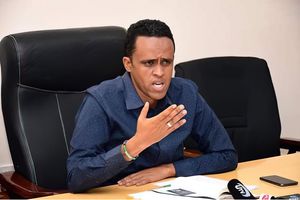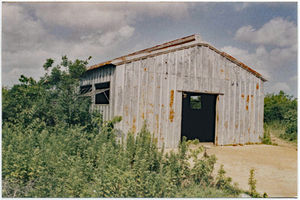Effects of Uganda’s ban on sports betting

Kampala. Uganda could lose up to Ush50 billion revenue annually, if government if it bans sports betting in the country.
Mr David Bahati, the State Minister of Planning, on Sunday announced that President Museveni had ordered government not to register new sports betting companies or renew licences for the existing companies upon expiry.
Speaking to this newspaper last evening, Mr Bahati said the government will determine the number of betting companies and where they will operate in a new regulatory regime.
“The President’s directive is that we do not issue licences to new companies and we should not renew licences of those that expire, with the aim of strengthening the regulatory framework,” he said last evening.
“What we are doing is to review the betting sector with the view to regulate the number of betting companies because there are complaints that they are mushrooming everywhere.
For example we will determine how many to licence and where they should operate across the country in order to strengthen the monitoring and protect youth from the effects of betting,” Mr Bahati added.
The minister, who said the monitoring would also stretch to online sites, did not give the time frame in which the new regulations would be implemented but that “sooner than later the ongoing review team will issue a statement on the procedures.”
Figures released by the National Gaming Board last year indicate that in 2016/17 financial year, government earned Sh37 billion from sports betting companies.
At the time, Mr Edgar Agaba, the chief executive officer of the National Gaming Board, said the projection for 2017/18 was at Ush42 billion, and Ush45 billion for 2018/19 financial year.
He said Uganda would earn up to Ush50 billion in 2019/20 financial year.
Information from the Gaming Board indicates that government issued licences to 40 general betting companies, 20 casinos, 15 slot machines and one pool betting facility last year.
Mr Albert Baine, a tax expert from Global Taxation Services Ltd, said government needs to strike a balance between the financial loss and the social impact of sports betting it intends to achieve or prevent.
“If it is about taxes, then they have to look at the data, say for the last two years and see how much they have been earning and what will be the cost of losing the revenue.
They have to come with a solution that is fair and balanced so that as a country we don’t lose out. But also the bad impacts of betting are not spread across all youth of the country,” he said.
Mr Baine also said government needs to get its priorities right and look for ways of expanding the tax base before banning sports betting.
Mr Paul Lakuma, a researcher at the Economic Policy Research Centre, said the decision to ban sports betting is welcome, but must be implemented in a well thought-out manner.
He said although the ban is still speculative because government has not made a specific policy to implement it, if the betting is well regulated it will eliminate the vices of gambling among the underage and the poor.
“It is a good move because a lot of unemployed youth have been using it as a means of employment. They should look for a way of regulating betting to prevent gambling, but that must be well planned because banning it will be like pushing it underground, which may bring more problems,” Mr Lakuma said.
“Sending the betting activities underground will bring in more problems like prostitution, money laundering, drug abuse and terror financing,” he added.
Mr Lakuma also said government should gazette areas for betting to avoid cases where all urban areas are littered with betting centres.
Religious leaders have been at the forefront of condemning betting and gambling which they said is a breeding ground for crime in the country.
Many criminals are suspected to be using betting centres for resting and reconnaissance of their targets during the days while at night they go for robbing.
Betting companies remained guarded on the impending ban on gambling activities in the country, saying they had not received any communication from government about the President’s directive. Several betting companies Daily Monitor contacted for a comment on the ban were all tight-lipped.
They said they will only give their official positions after getting communication from government.
Law says
According to the Gaming and Lotteries Regulations 2017, government issues licences to gaming facilities.
The law says the premises proposed to be used for such activities by the applicant shall be situated within a city, municipality or town; be away from a school, a hospital, a market, a place of worship or government offices and shall have a notice board placed in a conspicuous place for the display of licences, government notices, the rules of games promoted, telephone numbers of the Board, disclaimers regarding the effects of gambling and any other matter required to be displayed.




